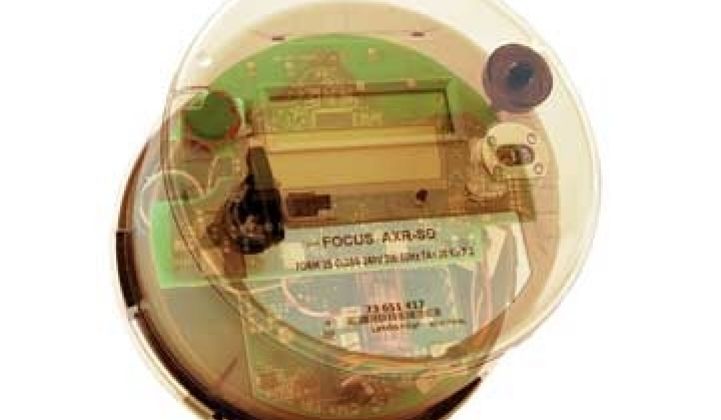If utilities could smile, Oncor would be grinning ear-to-ear today.
An independent analysis of Texas smart meters, ordered by the Public Utilities Commission of Texas, has found that the vast majority of advanced meters in the state are accurately measuring and recording electric usage and communicating that information back to the utilities.
The report comes after outcry last winter over high bills, especially amongst some Oncor customers. However, the report by Navigant Consulting found that Oncor, CenterPoint and AEP meters were, by and large, totally fine.
"We were very pleased that the study confirmed what we believed this spring to be happening to cause high bills," said Chris Schein, spokesperson for Oncor. "Our own research also confirmed this just a few weeks ago. But we wanted to make sure that our customers had the same level of confidence in the meters that we had. This third-party confirmation should help customers have that same confidence."
The investigation examined 2,627 meters and found just two that weren't functioning properly. In its analysis of meters in the field, Navigant found a few other issues with meters, but in most cases they did not result in higher bills.
The exception was about 2,627 meters that were installed inaccurately, a human error rather than a technical issue. The results come at an important time, as some politicians had been questioning Oncor and they may have taken action when the legislative session is back in session. But Oncor was forthright about the human-error issue with smart meters months ago, and was already working to correct the meters. Unfortunately, customers don't care if it's a faulty meter or faulty employee, higher bills are higher bills.
On the technical side, one type of Landis+Gyr meter was found to have a faulty hand-soldered joint in the circuit board that could have affected bills of 439 customers, although the report found that not all of those customers were impacted by a "quantifiable amount," and all the meters have been removed. Nearly double the amount of customers had smart meters that were running slow for various reasons.
But not all of the issues were minor. Due to human error, about 1,827 customers received higher bills ranging from $12 to $660 because the wrong code was entered during installation. Customers were all re-billed and Oncor has implemented a program that cross checks the code to ensure accuracy.
With more than one million smart meters installed to date, the issues chronicled in the 100-plus page report are minimal in number, but not inconsequential. Nearly 2,000 angry people are still a lot of angry people. (A lawsuit against Oncor is still pending.)
And as for all of those calls to Oncor last winter? The report found that the majority of complaints were still from customers with electromechanical meters, as Oncor told Greentech Media in March, and that many of those customers were likely using electric heat during what was a very cold winter.
Even though the report essentially supported Oncor's position, it did not clear the utilities of all wrongdoing. "It is apparent that any potential impact to customers from the observed advanced meter failures could have been limited, if not avoided entirely, if the respective [transmission and distribution service providers] had effectively monitored and analyzed the performance of these advanced meters given the information available to it," the report stated, also noting that teams of people were dispatched from the utilities as soon as problems were identified. Oncor agreed that there were more ways it could have used data coming from the meters in the first place to avoid some of the problems, and that moving forward it will be watching for those signals.
Smart meter rollout need to be proactive moving forward, given some of the backlash that has occurred with Oncor and Pacific Gas & Electric. This week Maryland's Public Service Commission is reconsidering Baltimore Gas & Electric's smart meter proposal, which must be approved by August 16 to hold onto $200 million in federal stimulus funds.
The Maryland's PSC has even noted other utilities' problems, asking BGE to propose more customer engagement for its revised proposal that was submitted a few weeks ago.
However, the results of this report, and one from PG&E that found less than one percent of meters were inaccurate, are not likely to assuage customers who are still seething over high bills and concerns over the health impacts of mesh networks.
The reports are not indictments of smart meter rollouts, but rather chronicles of lessons learned. For utilities like Hawaiian Electric Co. and BGE that have seen setbacks in their smart meter approvals, these lessons should be incorporated into a roadmap to avoid the same potholes.



